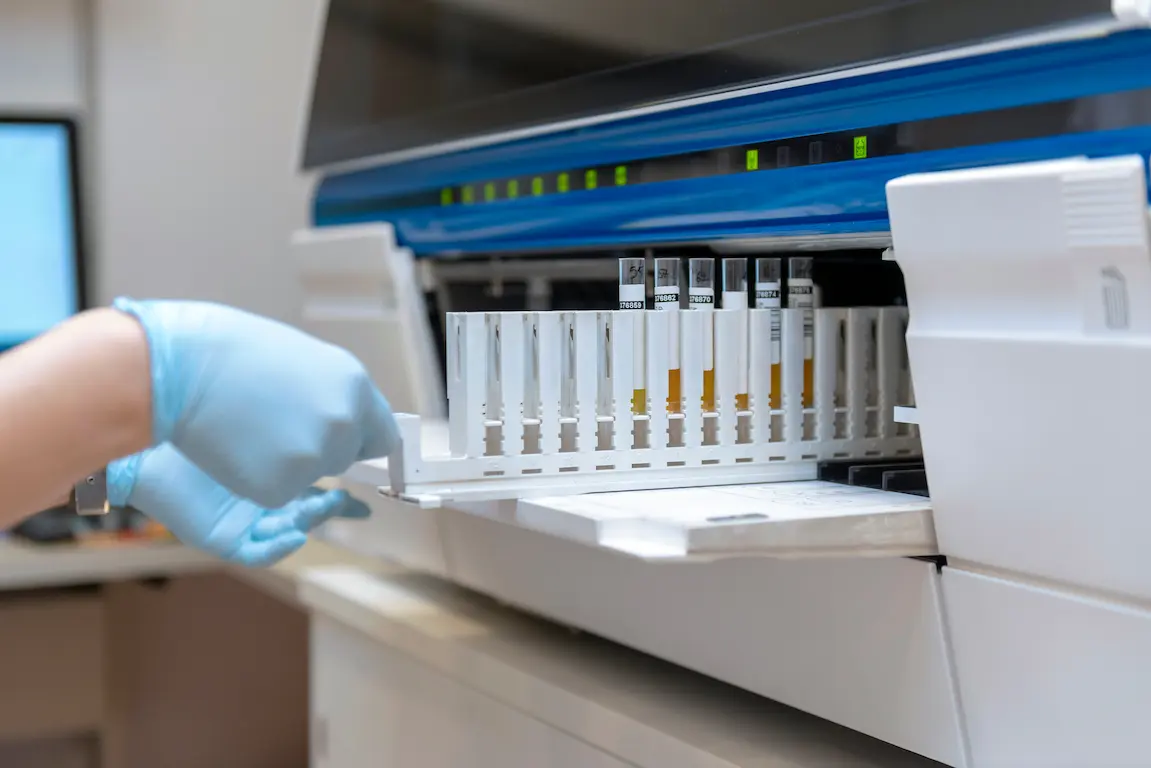
Thermal Management
Maintaining a consistent environment is important to enable accurate and consistent results in many life science applications. Thermal management is critical to optimizing biological processes, such as incubation for cell expansion and optical performance. Temperature gradients can cause uneven thermal expansion, leading to misalignment of optical components and reduced performance. Fluidic properties also vary with temperature, potentially affecting key process parameters such a dispense volume or flow rate in an instrument.
Speak with an ExpertLearn more about our thermal management capabilities
Why Ascential?
Ascential’s deep bench of experts in thermal management employs a comprehensive methodology that combines experimentation, root cause analysis, modeling and robust hardware design, and system-level solutions to maintain a consistent temperature and environment. By using cutting-edge techniques to preserve the integrity of instruments and processes, precision and consistency are achieved.

Comprehensive Methodology
The Ascential team approaches the development of diagnostic instruments with a comprehensive methodology to effective thermal management. This process begins with modeling to understand the impact of material selection and geometry on thermal performance. Next, the team fully characterizes the thermal profile of the diagnostic device by placing thermal probes across an instrument to locate and quantify all contributing heat sources. This profiling validates the model or uncovers any areas of concern.
Once the sources of heat are identified, the team works in parallel to update the model and conduct experiments to optimize the design to minimize impacts of heat sources. They implement closed-loop, active heating systems with real time data logging to maintain consistent temperatures across all interfaces. And in systems that require extremely tight thermal control, our experts can develop a fully automated calibration procedure to baseline each thermal cell. Calibration offset values can then be applied to ensure precise temperature control across all thermal locations.
Fluidics
Microfluidics play a crucial role in many diagnostic and drug delivery applications. These systems often require precise temperature control to manipulate fluid flow, control reactions, and ensure accuracy. Our team has deep experience developing microfluidic systems and utilizing thermal management for temperature control and uniform thermal distribution, ensuring accurate and reproducible results.
Our team uses thermal management techniques such as integrated heaters, temperature sensors, and microfluidic channels with different thermal conductivities to create and maintain specific temperature profiles within a device. By controlling temperature gradients and preventing temperature variations, our expertise in thermal management ensures reliability and ultimately improves the performance of microfluidic devices.
We understand the risks involved with thermal management and prevent issues such as bubble formation, which can disrupt fluid flow and interfere with results in microfluidic devices. Our experts use techniques such as degassing and controlled heating to remove dissolved gasses from microfluidic channels and maintain uniform temperature distribution, ensuring smooth fluid flow and reliable operation of the device.


Material Selection and Thermal Analysis
Thoughtful material selection is a key part of the design and development of medical products. Our experts assist in choosing materials with appropriate thermal properties in order to optimize heat transfer, withstand high temperatures, minimize thermal stress, and ensure the safety and performance of products and components throughout their lifecycle.
Ascential also utilizes thermal analysis to evaluate different design configurations and material choices to optimize thermal performance. By simulating the thermal behavior of various designs or materials under different operating conditions, thermal analysis helps identify the most effective design features or material combinations for achieving desired temperature control, heat dissipation, and thermal stability.







